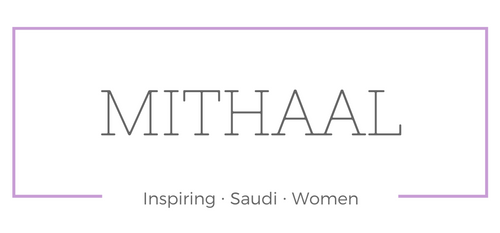Shahd Alshehail is Saudi Entrepreneur Who Spreads the Word and Gives Back
/Entrepreneur, Shahd Al Shehail, a Saudi national who gave up her comfortable job in 2008 to pursue her own path, a social enterprise, Just. Using real time data to help brands and consumers connect with the who, where, and how clothes are made. Victor Besa for The Nationa
When most employees in the finance sector were desperately trying to hang on to their jobs in 2009, Shahd AlShehail handed in her notice.
She knew she didn’t want to work in the industry any more – but needed time to figure out her next career move.
Leaving a secure position in commercial finance with a large corporate in the United States, she returned to Saudi Arabia, where she is from, to consider her options.
“Growing up, I’d heard stories from my grandfather who was an entrepreneur and a self-made man, who has not only made a good business out of what he did but also was so connected to the community in so many different ways,” she says. “That was always at the back of my mind.”
Luckily, her family were supportive and she went on to help launch a fashion label in Saudi Arabia that employs and supports underprivileged women becoming, not for the last time, a social entrepreneur.
“I didn’t know what the term meant at the time. But for the first time I was able to combine my business skills with something I felt strongly about – community development and policy mediation and doing good for the world,” she says.
Ms AlShehail later returned to the US, where she had already completed an accounting degree, to do an MBA in entrepreneurship at Johns Hopkins, Maryland.
As part of her course she visited Rwanda, where she read a book called The Blue Sweater, a memoir written by Jacqueline Novogratz, the founder of Acumen, a non-profit organisation that raises funds to invest in ideas, companies and people who seek to end poverty.
“I got really excited about what she was doing. After graduation I joined Acumen. It’s an amazing experience but also very rigorous, very difficult to get into. They take 10 people annually from over 1,200,” she says. “I was the first female from the Arab world who made it.”
Ms AlShehail was sent to Bangalore, India, as part of her fellowship to work on one of the organisation’s projects, which provided affordable educational services to prepare children for further education or employment.
She made friends with another Acumen fellow, Natalie Grillon, who was based in northern Uganda working with a company helping cotton farmers rebuild their community and economy.
And it was when Ms AlShehail and Ms Grillon discussed their experiences that they developed the idea for Just, a social enterprise they set up together a little over a year ago.
“[Natalie] was talking to me about this beautiful story of impact that this company had made for these farmers. It is a story that gets lost in the supply chain. And I was sharing with her how I saw consumers getting really excited about knowing these stories and we were wondering why don’t we know these stories.”
Two months later there was an explosion at Rana Plaza, a clothes factory in Bangladesh which killed more than 1,100 people.
“These farmers’ beautiful cotton could have ended up in a place like Rana Plaza and we would have not known,” says Ms AlShehail. “So we set out on a path to go and research the industry and figure out what it is going to take for brands to use better suppliers, for suppliers to switch their practices or improve their practices and for consumers to demand more of this. And that’s how it came about.”
Just, as Ms AlShehail and Ms Grillon called their company, collects data to tell a brand what is happening in their supply chain – where materials come from and who makes them, for example – and the brand, can, in turn, share the information with its customers.
Suppliers upload information to an app and their employees fill out anonymous surveys reporting when they were paid, while community partners, either non-profits or workers’ unions, for example, provide on-the-ground reviews. Just then displays the data on a dashboard which lets brands track what is happening in their supply chains.
For now, the serial social entrepreneur is happy working on Just. But she has not ruled out returning to her roots mentoring upcoming entrepreneurs or possibly training young Saudi people.
“I really believe in the concept that real change happens in the accumulation of all the small choices we make every day and spreading that concept on through social enterprise,” says Ms AlShehail.
“So I will continue to be engaged in that.”
Originally published on The National

